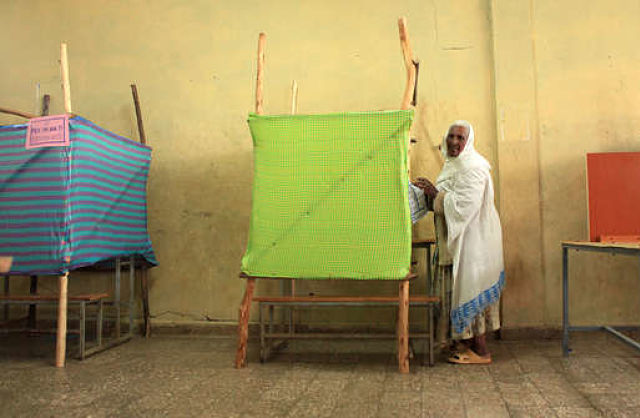 At a polling booth in Ethiopia on May 24th, 2015. (Photo: EPA)
At a polling booth in Ethiopia on May 24th, 2015. (Photo: EPA)
May 30th 2015 | ADDIS ABABA | From the print edition
NOWHERE in Africa is modern China more of a lodestar than in Ethiopia, which on May 24th held an uneventful election with a predetermined outcome: another term in office for the long-standing ruling party. The continent’s second most populous country and fastest-growing big economy has close intellectual links with China’s Communists and often sends officials to their party school in Beijing. There Ethiopians imbibe the gospel of industrialisation overseen by a strong state that exerts tight control over an ethnically diverse population with a history of strife.
But all is not well in the relationship. When a new Chinese ambassador arrived in Addis Ababa in February, he presented an unexpectedly awkward message to his hosts. La Yifan told the ruling elite—behind firmly closed doors—that it must discard the isolationism of the past and open up an economy in which the flow of money and information is still restricted. Banking and telecoms are almost antediluvian (see chart). Investors are frustrated. Trade lags expectations. After years of praising the government, the Chinese are now singing from the same hymn sheet as Ethiopia’s Western critics.
The problem is a lack of courage. Many in the Ethiopian government, ruling party and security apparatus acknowledge that only further reforms can sustain the goals of economic growth and political stability. But they are slow to enact them.
The government’s main priority is industrialisation. But endless red tape and restrictions on finance deter investors. Officials point to Huajian, a Chinese shoemaker that has gone from employing 600 locals to 3,500 in a few years. But Ethiopia needs a hundred Huajians. Without faster growth of industry, the country will struggle to absorb labour it hopes to free up from modernising subsistence farms that provide a living to 80% of its people.
—
Join the conversation on Twitter and Facebook.

























